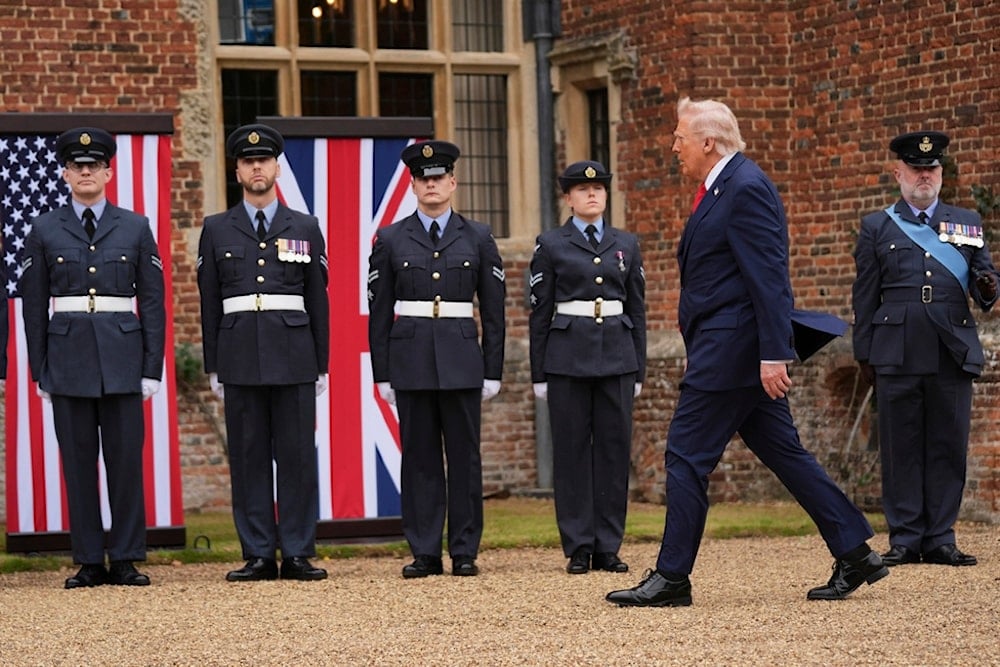US firms pledge £150bn in UK amid Trump's state visit
Trump's second state visit to the UK brought £150 billion in US investment pledges and a technology partnership, though unresolved steel tariffs reveal ongoing trade frictions.
-

US President Donald Trump arrives for a meeting with Britain's Prime Minister Keir Starmer at Chequers near Aylesbury, England, Thursday, September 18, 2025. (AP Photo/Evan Vucci)
US companies have pledged £150 billion of investment in the UK, a package unveiled to coincide with US President Donald Trump's second state visit.
Government officials said the commitments would create around 7,600 jobs, which they described as "high quality" opportunities spread across the country.
UK Prime Minister Sir Keir Starmer, speaking before bilateral talks at Chequers, framed the announcement as proof of the benefits of deeper US-UK ties.
"When we back British brilliance, champion our world-class industries, and forge deeper global alliances, especially with friends like the US, we help shape the future for generations to come and make people across the country better off," he said.
"These investments are a testament to Britain's economic strength and a bold signal that our country is open, ambitious and ready to lead. Jobs, growth and opportunity is what I promised for working people, and it's exactly what this state visit is delivering," he added.
Tech investment pact
At the core of the investment package is Blackstone, which is set to pour £90 billion into data centers, building on a previous £10 billion pledge, a commitment that will be rolled out over the next decade.
Prologis announced £3.9 billion, while Palantir outlined a £1.5 billion investment tied to a newly launched UK defense and artificial intelligence partnership.
Analysts note, however, that while the figures are headline-grabbing, much of the total represents multi-year commitments, with some elements previously signaled in earlier announcements.
The package also paves the way for Starmer and Trump to finalize what officials are calling a "technology prosperity deal", designed to cement economic cooperation in high-growth sectors.
The ceremonial side of the visit included a state banquet at Windsor Castle, where tech executives such as Apple's Tim Cook and OpenAI's Sam Altman joined discussions on the future of US-UK technological collaboration.
Read more: Nvidia CEO warns UK lacks infrastructure for AI advancement
Steel tariff stalemate
Even with the celebratory atmosphere, trade friction remains unresolved. London has delayed a move to cut the 25% tariff on British steel exports to the US, despite an earlier agreement to eliminate it.
Industry representatives, already grappling with financial pressures, voiced disappointment that the deal has stalled. The issue stems from a framework reached in May that promised tariff relief but required compliance with strict US "melted and poured" rules for steel.
While Britain secured an exemption from even higher duties that Washington has applied to other countries, the hoped-for zero-tariff outcome has been put on hold.
The government is now considering locking in the current 25% rate as a permanent arrangement, a step officials say would provide certainty, but which steelmakers argue still undermines competitiveness.
Trade groups warn that the uncertainty is deterring investment and damaging downstream industries, with one sector insider describing the delay as a “missed opportunity” for a struggling industry.

 3 Min Read
3 Min Read








